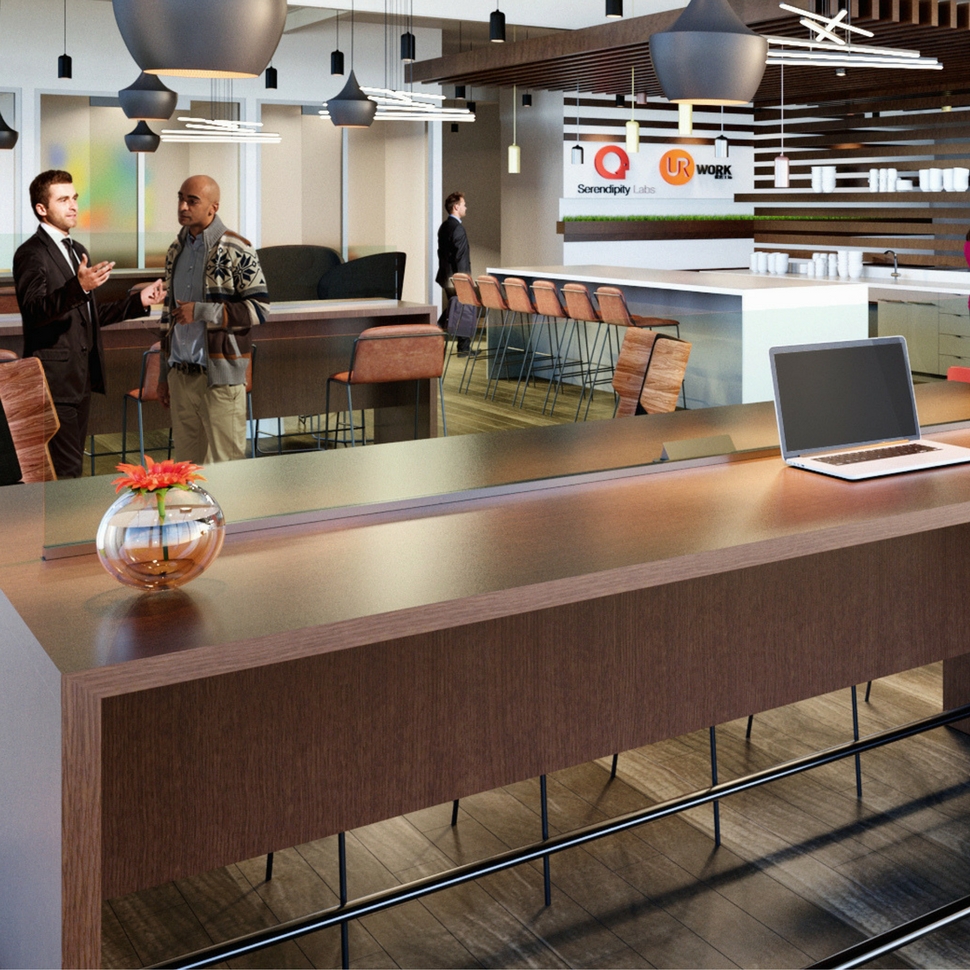This past July, Serendipity Labs and UrWork announced a partnership to open a 34,000 square foot co-branded location in New York City.
Allwork reached out to Serendipity Labs’ CEO, John Arenas, to learn more about what’s behind the partnership and the various benefits that the joint venture will bring to both coworking brands. Not only did UrWork and Serendipity Labs increase their footprint by 34,000 square feet, they also created the second largest coworking network globally and opened various workspace doors (literally) for their members.
John Arenas explains why the joint venture path was the right decision and how it fits in with the coworking brand’s growth strategy.
Allwork: Why a Chinese joint venture, when your experience and business are in North America?
John Arenas: Serendipity Labs is building a network of flexible workplaces that large enterprises can utilize, in locations where they need to be. Many of our members’ business needs require them to have access to trusted coworking facilities around the world.
Our joint marketing agreement with UrWork gives our members immediate access to 78 locations in China. We were able to accomplish this without directly investing capital and energy in what can be a challenging market to break into.
We are already working with several of our member companies that need workplaces for their teams in China; likewise, UrWork has several companies that have expressed interest in Serendipity Labs’ US locations.
What can you tell us about the business model Serendipity Labs and UrWork will be working with?
UrWork and Serendipity Labs have entered into a joint venture to open the 34,000 square foot workplace at 28 Liberty Street in Manhattan and have signed a joint marketing alliance that connects our networks of locations.
UrWork is a minority equity investor in the NYC location. The Lab will be operated and staffed by Serendipity Labs — to our standards — but co-branding will acknowledge UrWork’s role.
Both Serendipity Labs and UrWork have different methods to raising capital, how will you decide which locations will be co-branded and which won’t? Will your method of raising capital be affected by the new deal?
Right now, we are raising capital through strategic partners, real estate investors, and our franchisees — who primarily come from the hospitality industry. UrWork is the only coworking company that we are partnering with, and for the time being, NYC will be the only location that will be co-branded.
Other than co-branded locations, what else will this joint venture allow?
This joint venture inaugurates our marketing agreement with UrWork whereby we make each of our locations in the U.S. and China available to the other’s members through our respective apps.
This immediately gives members of both companies’ access to trusted workplaces in a country where they otherwise might have difficulty finding one. It will be easy to make meeting room and day pass reservations via each company’s app.
In the co-branded NYC Lab, we will also have some amenities to make members from China feel welcome, such as specialty snacks and drinks. Also, we will have a staff member who is fluent in Mandarin.
How will this joint venture power the growth of Serendipity Labs and UrWork?
We have immediately grown our network by 78 locations in China with the largest coworking provider in the country. This partnership elevates both companies; the combination represents the second largest coworking network globally.
Will the new joint venture change Serendipity Lab’s franchise model?
Serendipity Labs has a strategy of growing through joint ventures, franchisees, and company-owned locations. This joint venture with UrWork works within that strategy. We are adding new franchise development partners every month, with over 100 locations committed for development to date.
Does this mean that we can expect Serendipity Labs to go international?
We will grow where our members have told us they need trusted workplaces, which includes countries outside the U.S. This growth may be with franchisees, joint ventures or company-owned locations, just as in the States.
Anything else you’d like to add?
Coworking has grown up. There is a tremendous demand from established companies for ways to extend their real estate footprint through workspace-as-a-service offerings.
Additionally, we are seeing increased influx of institutional capital and sophisticated brand platforms; as well as the entry of more hospitality industry participants into the world of flexible workspaces and that more operators are searching for ways to expand their global network.



 Dr. Gleb Tsipursky – The Office Whisperer
Dr. Gleb Tsipursky – The Office Whisperer Nirit Cohen – WorkFutures
Nirit Cohen – WorkFutures Angela Howard – Culture Expert
Angela Howard – Culture Expert Drew Jones – Design & Innovation
Drew Jones – Design & Innovation Jonathan Price – CRE & Flex Expert
Jonathan Price – CRE & Flex Expert












